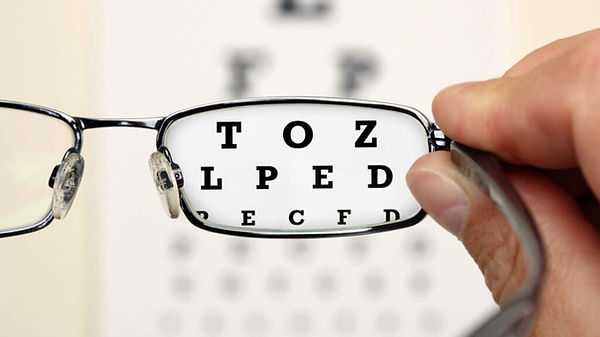REFRACTIVE ERRORS/ GLASSES

What is a Refractive Error?
A refractive error happens when the shape of your eye prevents light from focusing correctly on the retina (the light-sensitive tissue at the back of the eye). It causes blurry vision and is one of the most common eye problems.
Types of Refractive Errors:
-
Myopia (Nearsightedness): You can see nearby objects clearly, but distant objects appear blurry.
-
Hyperopia (Farsightedness): You can see far objects clearly, but nearby ones are blurry.
-
Astigmatism: Vision is blurred at all distances due to an irregular shape of the cornea or lens.
-
Presbyopia: Age-related loss of the eye’s ability to focus on close objects (usually after age 40).
What is LASIK Laser Eye Surgery?
LASIK (Laser-Assisted In Situ Keratomileusis) is a popular type of laser eye surgery used to treat myopia, hyperopia, and astigmatism.
How LASIK Works:
-
A thin flap is made in the cornea (front part of the eye).
-
A laser reshapes the cornea so that light entering the eye focuses properly on the retina.
-
The flap is then placed back in position to heal naturally.
-
-
Benefits of LASIK:
-
Quick procedure (10–15 minutes per eye)
-
Fast recovery (many patients return to normal activities in 1–2 days)
-
Little or no pain during the procedure
-
Long-lasting results
-
Reduced or eliminated need for glasses or contact lenses
Risks & Considerations:
-
Dry eyes
-
Glare, halos, or double vision (especially at night)
-
Undercorrection or overcorrection (may still need glasses)
-
Not suitable for everyone (e.g., thin corneas, certain eye diseases)
Before LASIK Surgery:
-
Eye exams and tests to measure corneal thickness, eye shape, and vision.
-
You must stop wearing contact lenses for a few days to weeks before the tests.
-
Discuss your medical history and expectations with your eye doctor.
After LASIK Surgery:
-
Use prescribed eye drops to prevent infection and inflammation.
-
Avoid rubbing your eyes.
-
Follow up with your doctor to ensure proper healing.
Who Can Get LASIK?
You may be a good candidate if:
-
You are 18 years or older
-
Your vision is stable for at least 1 year
-
You have healthy eyes (no infections or major eye diseases)
-
You are not pregnant or breastfeeding
Advice:
Talk to a qualified eye surgeon to find out if LASIK is right for you. While LASIK has high success rates, like any surgery, it has risks. Make an informed decision based on your lifestyle, eye health, and expectations.



_pdf.png)